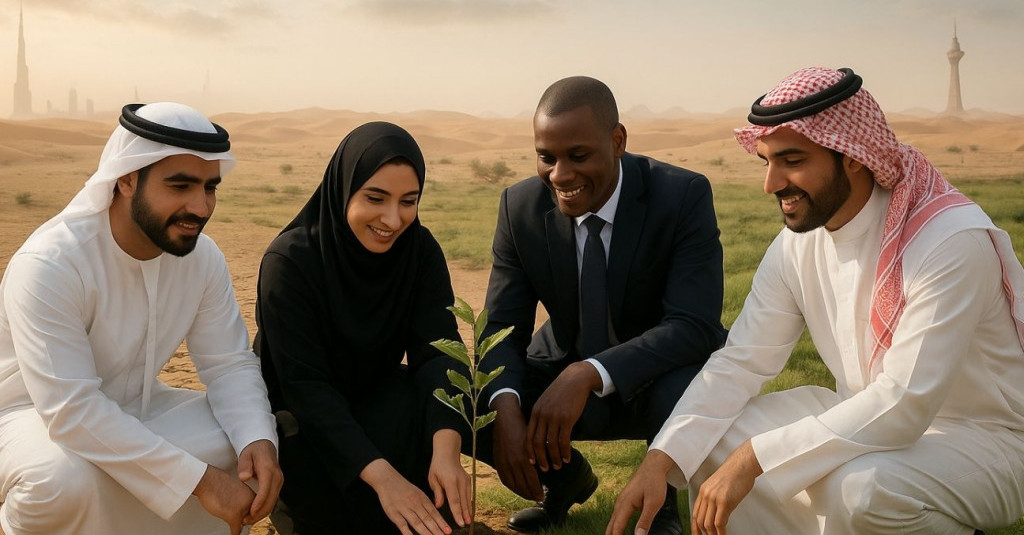News
Arab Environment Day: Addressing Land Degradation for a Sustainable Future

Every year on the 14th of October, the Arab world gathers to observe Arab Environment Day, a significant event that highlights the region's most pressing environmental issues. In 2024, the theme, "Land Restoration for Enhanced Resilience," emphasizes the urgent need to combat desertification, restore degraded lands, and enhance the resilience of ecosystems in the Arab region.
In the lead-up to this year’s celebrations, Ambassador Dr. Ali bin Ibrahim Al Maliki, Assistant Secretary-General and Head of the Economic Affairs Sector at the Arab League, issued a stark warning about the ongoing degradation of natural resources in the Arab world. Speaking from the Arab League's headquarters in Cairo on October 9th, Dr. Al Maliki stressed that 90% of the region's land is classified as dry or extremely dry, resulting in it being vulnerable to desertification. The consequences of this land degradation are far beyond environmental concerns, causing food security, economic stability, and social cohesion across the region.
Dr. Al Maliki emphasized the need for regional cooperation to address these challenges, urging Arab nations to adhere more closely to environmental treaties and sustainable development frameworks. His remarks came during a high-level gathering of environmental experts, international organizations, and civil society representatives, who discussed strategies for reversing land degradation, improving resilience to drought, and promoting sustainable land use practices.
The Arab Council of Ministers Responsible for Environmental Affairs has launched a series of initiatives to implement the Arab Declaration on Environment and Development. These initiatives focus on the region's most pressing environmental issues, such as desertification, industrial pollution, and the transition to a green and circular economy. Through these efforts, the Arab world strives to establish a sustainable path for its future by restoring degraded lands and constructing resilient ecosystems that can better cope with the effects of climate change.
In a landmark development, the Arab League has also signed a Memorandum of Understanding (MoU) with China to establish the China-Arab International Research Centre for Drought, Desertification, and Land Degradation. This partnership will utilize China's extensive experience in desertification control to enhance the Arab region's capacity for sustainable land management. Such international collaborations are essential in addressing the environmental issues affecting the Arab world, bringing together shared knowledge and resources to address common challenges.
As part of the celebrations on Arab Environment Day, the region will host a range of activities and events aimed at raising public awareness of key environmental issues. This year's theme emphasizes the importance of land restoration not only as an environmental priority but also as a crucial element for social and economic resilience. These events will highlight the crucial role that healthy, restored land plays in ensuring livelihoods, safeguarding food systems, and fostering sustainable growth.
In parallel, the 35th meeting of the Council of Arab Ministers Responsible for Environmental Affairs, scheduled to take place in Jeddah, Saudi Arabia, on October 14th, will provide a platform for Arab leaders to explore further strategies for addressing the region's environmental challenges. The Council’s discussions will focus on scaling up initiatives to combat desertification, improve water resource management, and enhance overall environmental resilience.
Arab Environment Day is a powerful reminder that the environmental challenges facing the region, such as land degradation, climate change, or resource scarcity, are interconnected and require coordinated, long-term solutions. It is a call for action, urging governments, organizations, and citizens to cooperate to safeguard the region's future. By prioritizing land restoration and embracing sustainable development, Arab nations can achieve a more resilient, prosperous, and environmentally secure future for generations to come.